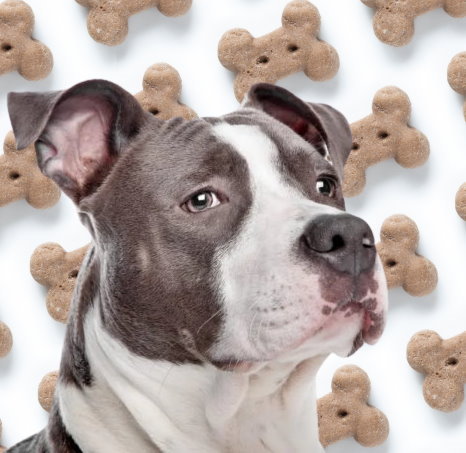Welcome to Dog Training Newbies !
Welcome to Dog Training Newbies !

Pit Bull Terriers are known for their loyalty, strength, and playful demeanor. As a responsible Pit Bull owner, providing your furry companion with proper nutrition is essential for their overall health, well-being, and longevity. Pit Bulls have specific dietary requirements that must be met to support their active lifestyle, muscle maintenance, and overall vitality. In this article, we will explore the importance of proper nutrition for Pit Bull Terriers, key elements of a balanced diet, feeding guidelines, and tips to ensure that your beloved Pit Bull thrives on a diet that is tailored to their unique needs.
UNDERSTANDING YOUR PIT BULL'S NUTRITIONAL NEEDS
Pit Bull Terriers are a robust and energetic breed that requires a diet rich in essential nutrients to fuel their active lifestyle. Protein is a crucial component of a Pit Bull's diet as it supports muscle development, repair, and overall growth. High-quality animal-based proteins, such as chicken, beef, and fish, are ideal for meeting the protein needs of Pit Bulls.
In addition to protein, Pit Bulls require a balance of fats, carbohydrates, vitamins, and minerals in their diet. Fats provide a concentrated source of energy for your Pit Bull's high activity level, while carbohydrates supply additional energy and fiber for digestive health. Vitamins and minerals are essential for maintaining various bodily functions, supporting immune health, and promoting overall well-being.
KEY ELEMENTS OF A BALANCED DIET FOR PIT BULL TERRIERS
A balanced diet for your Pit Bull Terrier should consist of high-quality protein sources, healthy fats, complex carbohydrates, and a variety of vitamins and minerals. When selecting a commercial dog food for your Pit Bull, look for formulas that are specifically formulated for active breeds or medium to large-sized dogs. These formulas are designed to meet the unique nutritional needs of Pit Bulls and provide a well-rounded diet for your canine companion.
In addition to commercial dog food, you can supplement your Pit Bull's diet with fresh fruits and vegetables, lean meats, and occasional treats to provide variety and additional nutrients. However, it is essential to ensure that any supplemental foods are safe and appropriate for your Pit Bull's consumption.


FEEDING GUIDELINES FOR YOUR PIT BULL
The feeding guidelines for your Pit Bull Terrier will depend on various factors, including their age, weight, activity level, and overall health. Puppies require a diet that is higher in calories and nutrients to support their growth and development, while adult Pit Bulls may benefit from a diet tailored to their energy needs and weight management goals.
Divide your Pit Bull's daily food intake into two or three meals to help prevent issues such as bloat and support healthy digestion. Monitor your dog's body condition regularly and adjust their portion sizes as needed to maintain a healthy weight and body condition.
TIPS FOR NOURISHING YOUR PIT BULL
Consult with Your Veterinarian: Before making any changes to your Pit Bull's diet, consult with your veterinarian to ensure that you are providing them with the appropriate nutrition for their age, size, and health status.
Provide Fresh Water: Always ensure that your Pit Bull has access to fresh, clean water throughout the day to prevent dehydration and support their overall health and well-being.
Monitor Your Pit Bull's Weight: Regularly monitor your Pit Bull's weight and body condition to ensure that they are maintaining a healthy weight. Adjust their feeding portions as needed to prevent obesity or undernourishment.
Avoid Overfeeding: Pit Bulls have a tendency to overeat, so it is essential to measure their food portions carefully and avoid free-feeding to prevent weight gain and associated health issues.
Nourishing your Pit Bull Terrier with a diet that is tailored to their specific nutritional needs is essential for promoting their health, well-being, and vitality. By providing your Pit Bull with a balanced diet, following feeding guidelines, and implementing proper feeding practices, you can support their muscle development, energy levels, and overall health. Remember that a well-nourished Pit Bull is a happy, healthy, and vibrant companion who will bring joy and companionship to your life for years to come. Invest in your Pit Bull's health and well-being by prioritizing proper nutrition and feeding practices that are designed to meet their unique needs and support their active lifestyle.